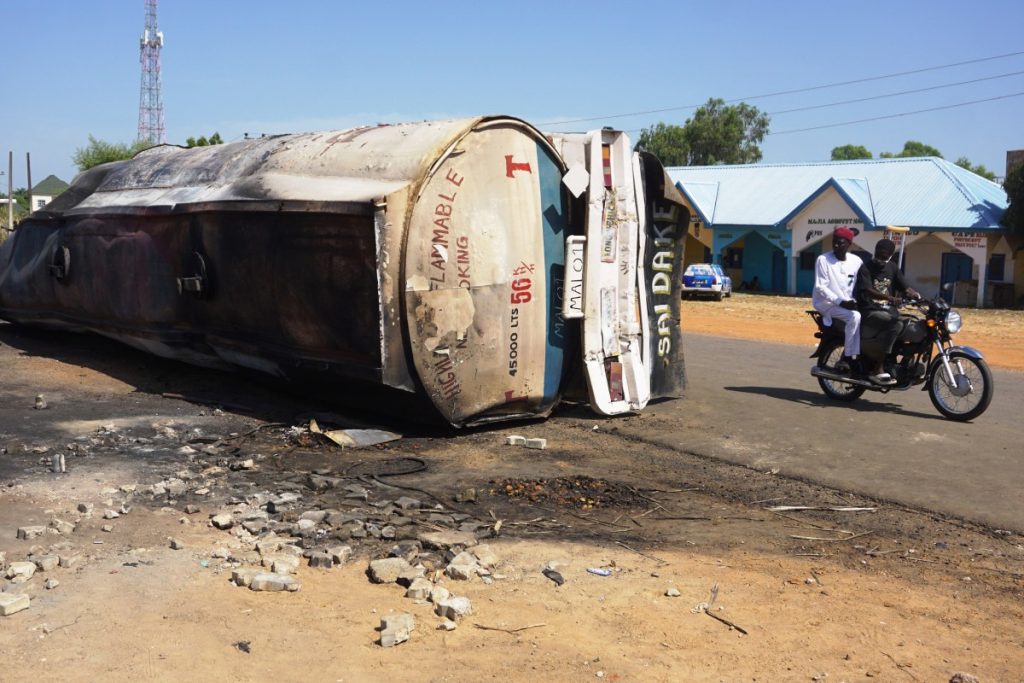Imagine waking up to the sound of screaming—people burning alive. The air thick with the stench of charred flesh. The streets littered with bodies too burned to be identified.
This is not a war zone. This is Nigeria, where fuel tanker explosions happen so often they barely make the news. Over the past five years, these disasters have killed more Nigerians than some terrorist attacks. And yet, nothing changes.
The statistics are horrifying. In 2020 alone, Nigeria recorded 1,531 fuel tanker crashes. That means four accidents every single day, leading to the deaths of 535 people and over 1,100 others suffering burns so severe they were unrecognisable.
Fast forward to 2025, and the nightmare continues. In January, a tanker explosion in Suleja killed at least 70 people as they tried to scoop fuel. Just days later, another blast on the Enugu-Onitsha expressway claimed 18 lives in an instant.
This is not an accident. This is negligence
These disasters are not just bad luck. They are the direct result of recklessness, greed, and government failure. Tankers designed to carry 33,000 liters are illegally overloaded with up to 75,000 liters, turning them into rolling bombs. Our highways, riddled with massive potholes, make it almost inevitable that these unstable trucks will flip over. When they do, all it takes is one spark, and entire communities are wiped out in seconds.
Worse still, the economic crisis has driven Nigerians to desperation. people now rush toward overturned tankers with buckets, hoping to collect free petrol. And then, as we have seen time and time again, tragedy strikes

These aren’t just numbers. Behind every statistic is a shattered family, a life destroyed in an instant. In Ogun State, a man lost his entire family—his wife, his three children, and his mother—when a tanker exploded in front of them. One moment, they were together. The next, they were gone.
In Lagos, a young boy ran out to fetch fuel from a spill. His mother later found only a piece of his school uniform, burned to ash.
These are not isolated incidents. They are stories of loss, of grief, of preventable death.
This is not just a tragedy. It is a failure of leadership, a failure of accountability, and a failure of conscience. The government must act now. Overloaded tankers must be taken off the roads immediately, while highways must be repaired to prevent further disasters. Public safety campaigns must be launched to warn people about the dangers of fuel scooping. And tanker owners, companies, and reckless drivers must face real consequences for the lives lost due to their negligence. How many more bodies must we count before Nigeria finally wakes up?


